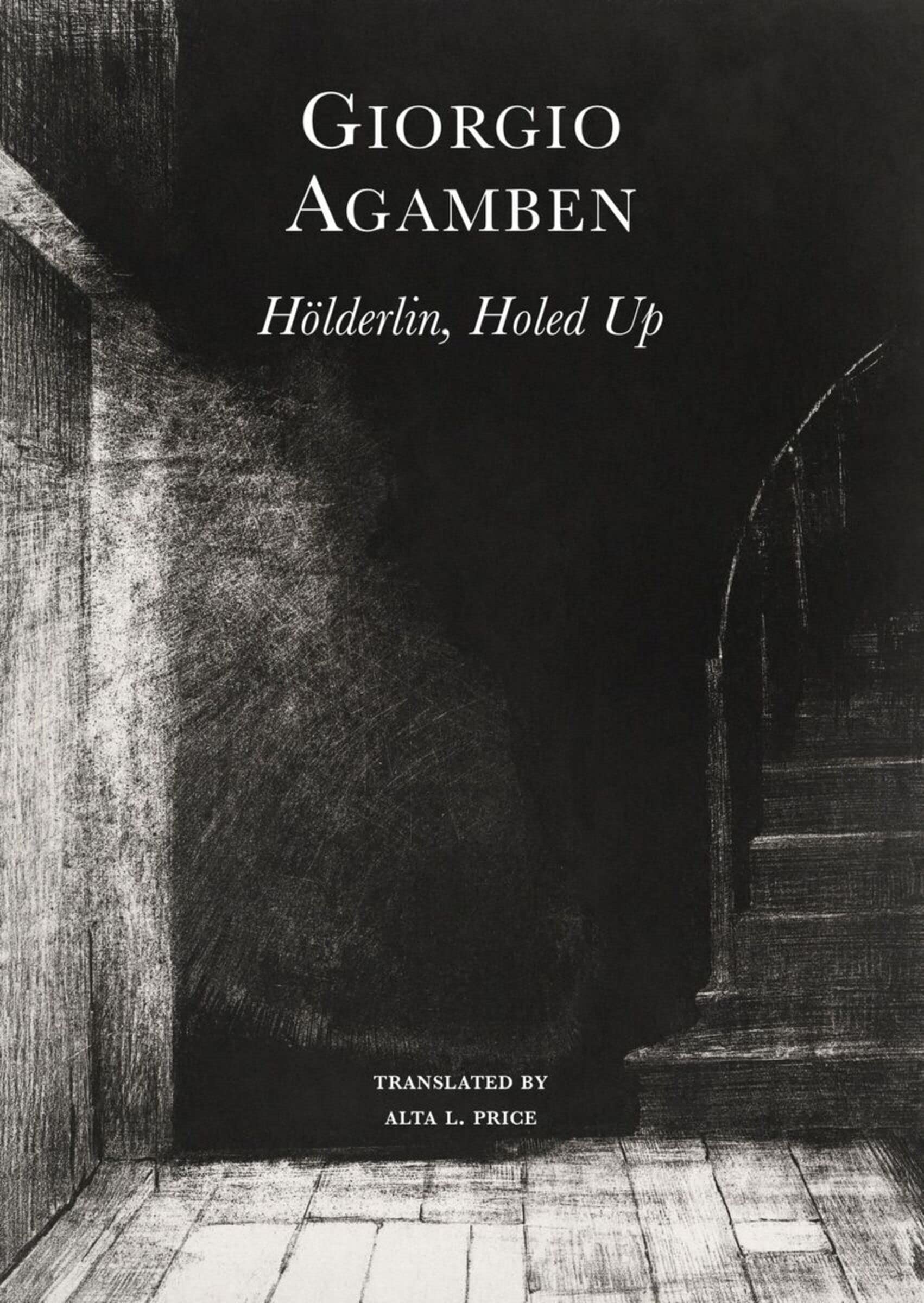

Hölderlin’s Madness: Chronicle of a Dwelling Life, 1806–1843
Giorgio Agamben, Alta L. Price
3.71(59 readers)
One of Europe’s greatest living philosophers, Giorgio Agamben, analyzes the life and work of one of Europe’s greatest poets, Friedrich Hölderlin.
What does it mean to inhabit a place or a self? What is a habit? And, for human beings, doesn’t living mean—first and foremost—inhabiting? Pairing a detailed chronology of German poet Friedrich Hölderlin’s years of purported madness with a new examination of texts often considered unreadable, Giorgio Agamben's new book aims to describe and comprehend a life that the poet himself called habitual and inhabited.
Hölderlin’s life was split neatly in his first 36 years, from 1770 to 1806; and the 36 years from 1807 to 1843, which he spent as a madman holed up in the home of Ernst Zimmer, a carpenter. The poet lived the first half of his existence out and about in the broader world, relatively engaged with current events, only to then spend the second half entirely cut off from the outside world. Despite occasional visitors, it was as if a wall separated him from all external events and relationships. For reasons that may well eventually become clear, Hölderlin chose to expunge all character—historical, social, or otherwise—from the actions and gestures of his daily life. According to his earliest biographer, he often stubbornly repeated, “nothing happens to me.” Such a life can only be the subject of a chronology—not a biography, much less a clinical or psychological analysis. Nevertheless, this book suggests that this is precisely how Hölderlin offers humanity an entirely other notion of what it means to live. Although we have yet to grasp the political significance of his unprecedented way of life, it now clearly speaks directly to our own.
What does it mean to inhabit a place or a self? What is a habit? And, for human beings, doesn’t living mean—first and foremost—inhabiting? Pairing a detailed chronology of German poet Friedrich Hölderlin’s years of purported madness with a new examination of texts often considered unreadable, Giorgio Agamben's new book aims to describe and comprehend a life that the poet himself called habitual and inhabited.
Hölderlin’s life was split neatly in his first 36 years, from 1770 to 1806; and the 36 years from 1807 to 1843, which he spent as a madman holed up in the home of Ernst Zimmer, a carpenter. The poet lived the first half of his existence out and about in the broader world, relatively engaged with current events, only to then spend the second half entirely cut off from the outside world. Despite occasional visitors, it was as if a wall separated him from all external events and relationships. For reasons that may well eventually become clear, Hölderlin chose to expunge all character—historical, social, or otherwise—from the actions and gestures of his daily life. According to his earliest biographer, he often stubbornly repeated, “nothing happens to me.” Such a life can only be the subject of a chronology—not a biography, much less a clinical or psychological analysis. Nevertheless, this book suggests that this is precisely how Hölderlin offers humanity an entirely other notion of what it means to live. Although we have yet to grasp the political significance of his unprecedented way of life, it now clearly speaks directly to our own.
Publisher
Seagull Books
Publication Date
11/5/2022
ISBN
9781803091167
Pages
262
Categories
About the Author

Giorgio Agamben
Giorgio Agamben is one of the leading figures in Italian and contemporary continental philosophy. He is the author of Homo Sacer: Sovereign Power and Bare Life; Remnants of Auschwitz: The Witness and the Archive; Profanations; The Signature of All Things: On Method, and other books. Through the 1970s, 1980s, and early 1990s he treated a wide range of topics, including aesthetics, literature, language, ontology, nihilism, and radical political thought.
In recent years, his work has had a deep impact on contemporary scholarship in a number of disciplines in the Anglo-American intellectual world. Born in Rome in 1942, Agamben completed studies in Law and Philosophy with a doctoral thesis on the political thought of Simone Weil, and participated in Martin Heidegger’s seminars on Hegel and Heraclitus as a postdoctoral scholar.
He rose to international prominence after the publication of Homo Sacer in 1995. Translated into English in 1998, the book’s analyses of law, life, and state power appeared uncannily prescient after the attacks on New York City and Washington, DC in September 2001, and the resultant shifts in the geopolitical landscape. Provoking a wave of scholarly interest in the philosopher’s work, the book also marked the beginning of a 20-year research project, which represents Agamben’s most important contribution to political philosophy.
In recent years, his work has had a deep impact on contemporary scholarship in a number of disciplines in the Anglo-American intellectual world. Born in Rome in 1942, Agamben completed studies in Law and Philosophy with a doctoral thesis on the political thought of Simone Weil, and participated in Martin Heidegger’s seminars on Hegel and Heraclitus as a postdoctoral scholar.
He rose to international prominence after the publication of Homo Sacer in 1995. Translated into English in 1998, the book’s analyses of law, life, and state power appeared uncannily prescient after the attacks on New York City and Washington, DC in September 2001, and the resultant shifts in the geopolitical landscape. Provoking a wave of scholarly interest in the philosopher’s work, the book also marked the beginning of a 20-year research project, which represents Agamben’s most important contribution to political philosophy.
Questions & Answers
Reader Reviews
Loading comments...